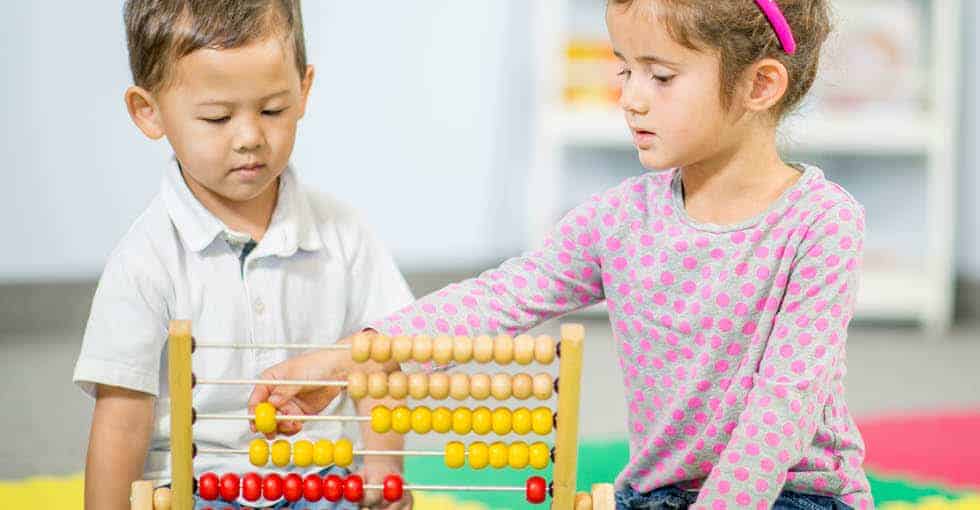What Early Math Skills Should Preschoolers Learn?
Children should enter kindergarten with many basic math skills already in place. Preschool math programs play a crucial role in developing this important early math knowledge.
- Recognize and write numerals.
- Count verbally, both forward and backward. Count the number of objects in a set.
- Compare quantities. For example, understand that five apples are more than three.
- Understand basic geometry. Recognize shapes, parts and wholes. Form new shapes by putting two or more shapes together, or by taking them apart.
- Understand spatial relationships such as in-out, on-off, under-over, up-down and in front of-behind.
- Recognize linear and size relationships like taller-shorter, longer-shorter and bigger-smaller.
Math Lesson Plans for Preschoolers
Experts point out that young children learn informally during play as well as from hands-on lessons from a qualified teacher. This is as true for math as it is for other subjects.
- Foundational experiences occur naturally during “math play” activities in which kids intuitively use concepts like counting, sorting and ordering.
- So-called “mathematized” experiences take place during structured lessons that build on this foundational knowledge.
A well-rounded early childhood program will integrate math into the entire curriculum, both in classroom learning centers and during circle time.
- For example, cooking a recipe develops a child’s understanding of measuring, sorting and counting ingredients.
- Collecting leaves for a science lesson can involve counting the total number of leaves and measuring which leaves are bigger or smaller. Leaves can also be sorted into categories based on size, shape and type of tree.
- Art projects give preschoolers another opportunity to practice identifying shapes, sizes and quantities.
- Stories, songs and games offer another fun and memorable way to introduce math concepts.

